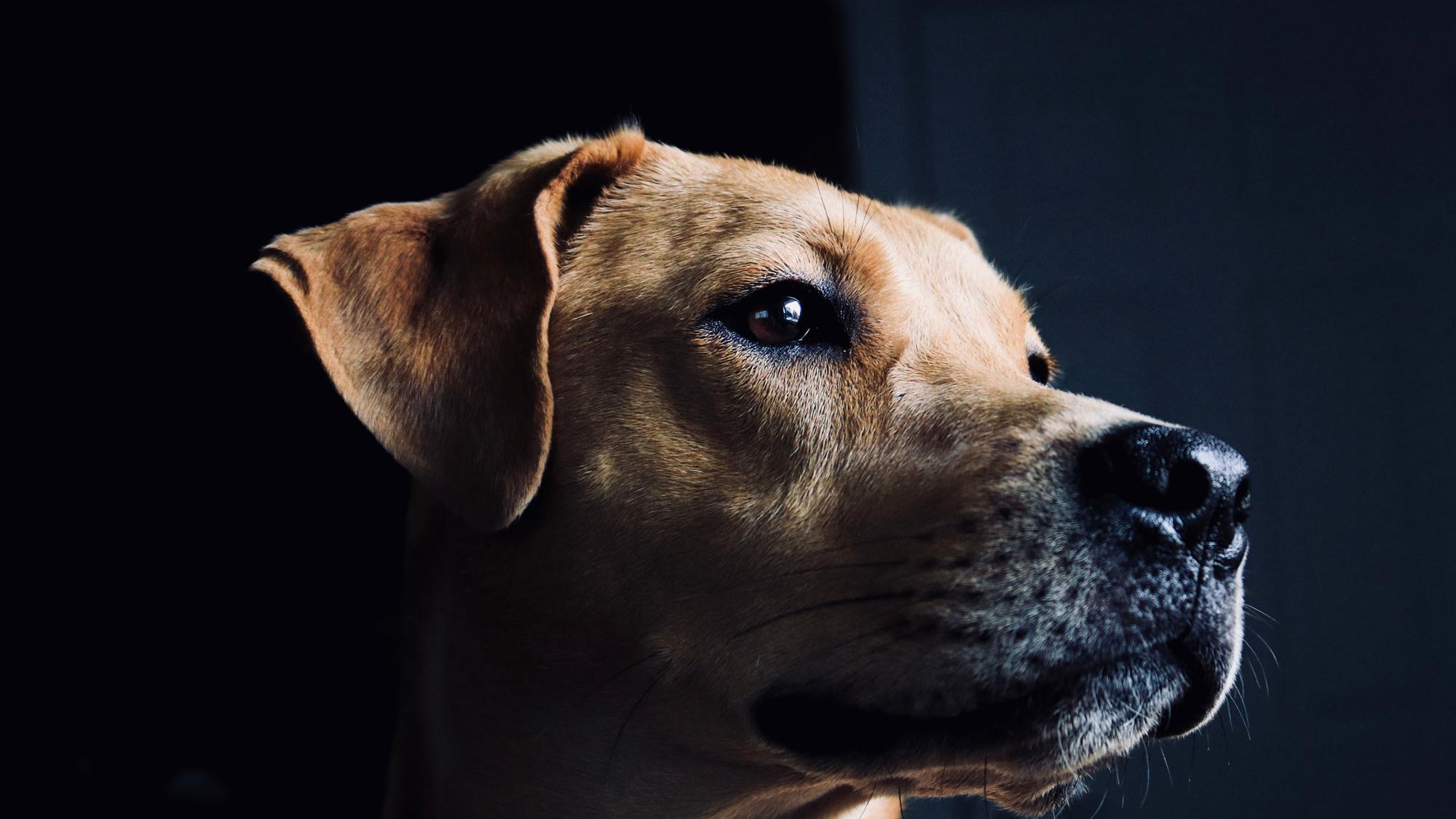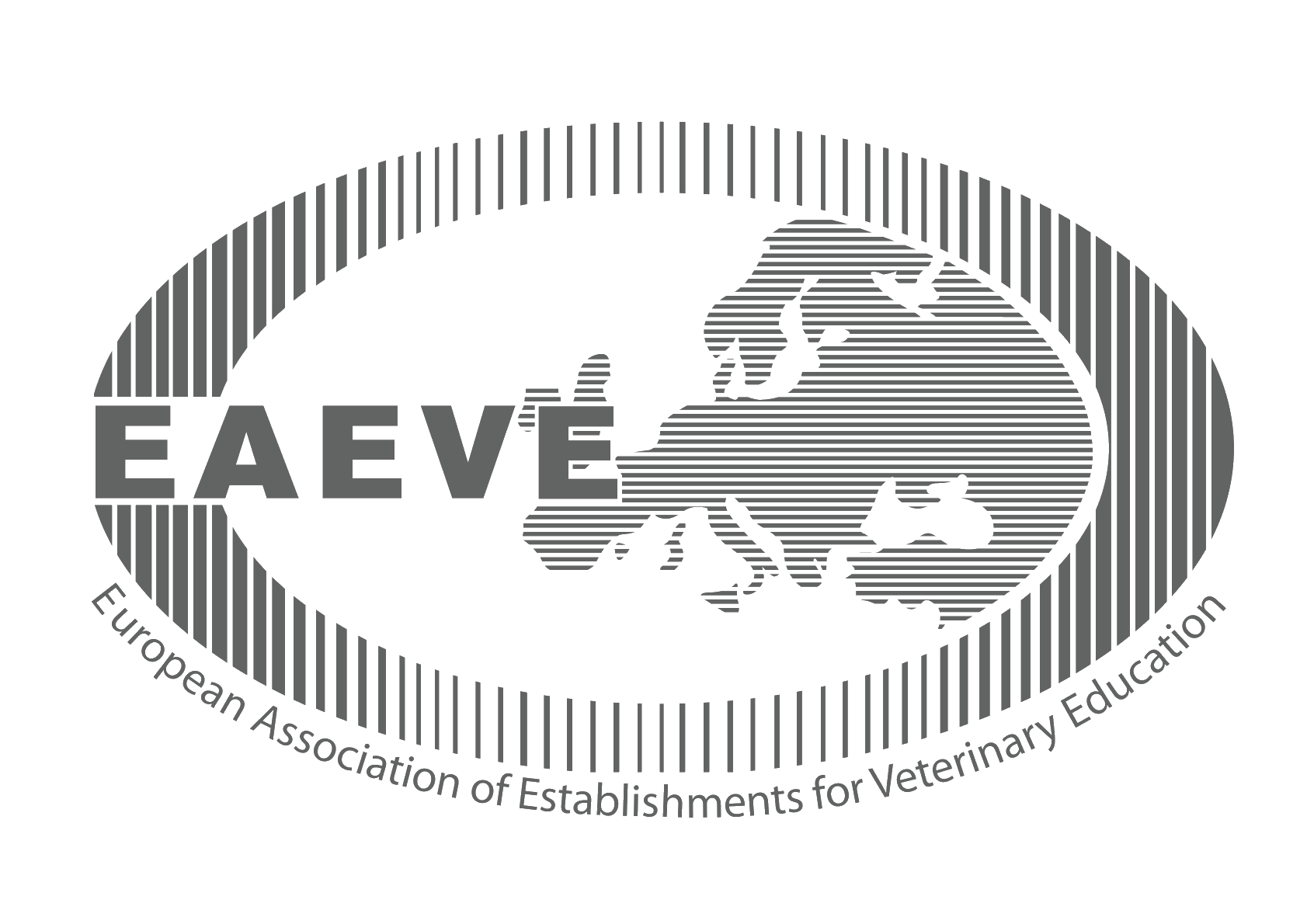The programme is intended for veterinarians working in the field of small animal medicine (cats and dogs) and provides attendees with in-depth theoretical and practical knowledge in the diagnosis, prevention and treatment of cats and dogs.

Small Animal Veterinary Medicine
Inroduction
The continual development of our profession and the need to introduce modern concepts into our work demand new approaches to gain additional professional knowledge. In the past decade, important changes in theoretical and practical work have been made at all levels of veterinary medicine.
Great progress has been achieved in the processes of thinking and critical reasoning, which are now based on clinical and diagnostic cognitive skills. Contemporary clinical examinations and tests are based on evidential and deductive processes. Candidates can increase their knowledge and experience and direct it towards resolving diseases of individual animals and/or the herd. The work of professionals demands that they are educated, rational, and that they demonstrate a desire for an advanced level of clinical-diagnostic and critical-thinking skills.
In veterinary medicine, the need for supplementary learning is dictated by constant developments in current knowledge and new fields influencing the quality of professional work, which indirectly affects society as a whole. The European Association of Establishments for Veterinary Education – EAEVE recommends the introduction of advanced and continual post-graduate education. Post-graduate education is also encouraged by the Slovenian representative veterinary organization (Veterinary Chamber) and numerous veterinary associations.
The training programme is intended for veterinarians who work in the field of small animal medicine (dogs and cats) and it enables participants to acquire profound theoretical and practical knowledge of diagnostics, medical treatment and prevention of diseases of dogs and cats. It includes the required minimum share of in-depth theory and a significant proportion of practical clinical work under the direct and indirect guidance of a mentor. Independence in the subsequent clinical work is also the basic aim of the training programme.
The manner of postgraduate studies in the field of clinical practice envisaged by the training programme is recommended and even required by the EAEVE.
Programme information
The Advanced Studies Training Programme in Veterinary Medicine for Small Animals lasts for three years and is awarded 60 European credit transfer system (ECTS) credit points. The training programme encompasses eight mandatory and three elective modules which are horizontally interconnected. All modules are composed of the theoretical part, comprising 10 %, and the practical part, comprising 90 % of the entire content.
The study requirements are evaluated upon the basis of the ECTS. (European Credit Transfer System).
Price |
6.000,00 € VAT incl. |
| ECTS (European Credit Transfer System) | 60 |
| total student's work | 1800 hours |
| modules (mandatory + elective) | 8 + 3 |
| practical work | 90 % |
| theoretical work | 10 % |
Basic objectives and competences
The basic aim of the training programme is to enable participants, i.e. doctors of veterinary medicine, to acquire profound theoretical and mainly practical knowledge from all fields of veterinary medicine for small animals, which is a precondition for quality performance of clinical practice. During their specialist training, veterinarians should become familiar with theoretical and mainly practical knowledge including adequate clinical approach to patients and appropriate communication with owners as well as suitable application of diagnostic and therapeutic methods in all the covered fields of veterinary medicine for small animals.
The training programme enables trainee specialists to acquire the following: wider competence including the ability to analyse, connect and solve problems, independence in making decisions concerning professional work, awareness of ethical, moral and material responsibility, the ability to organise and plan, knowledge of research methods and their applicability at work, the ability to work in groups, communication and cooperation with users and other professions, the ability to perform written and oral communication in their native tongue and in a foreign language, and information management.
Upon successfully completing the training programme, candidates will be able to assess the causes of a disease, its course and resulting conditions. Candidates will master modern laboratory and clinical diagnostic methods as well as modern approaches of prevention and treatment in the field of veterinary medicine for small animals.
Average intake
The number of available places is 15 per year.
Mentorship
A participant selects a mentor prior to or upon enrolment. A mentor or a co-mentor is a person who holds a professional or teaching title and whose adequate expertise in the field has been certified. The mentor's task is to guide students during their training period.
Admission requirements
To apply for the Advanced Studies Programme in Small Animal Medicine candidates must meet the following requirements: hold a degree in veterinary medicine, have at least three years of work experience in the field of small animal medicine, and possess a valid licence. Candidates who have completed the degree abroad must attach a Certificate of Education Completed in a Foreign Education System.
Selection criteria in the case of enrolment limitation
Selection of candidates will be based on work experience, a letter of recommendation from a veterinary association, as well as on their scientific and professional achievements. Individual elements for selection will be evaluated in the following manner:
Selection criteria |
Share in % |
| Work experience | 50 |
| Letter of recommendation from a veterinary association | 40 |
| Bibliography | 10 |
The admission limit is 15 candidates in accordance with Paragraph 1 of Article 41 of the Higher Education Act.
Recognition of knowledge and skills acquired prior to admission
The recognition of knowledge and skills acquired prior to admission shall be approved by the programme supervisor based on certificates and the mentor’s opinion.
Conditions for advancement in the training programme
Prior to taking the final exam, candidates must submit evidence of completed obligations.
Conditions for the completion of the training programme include the completion of the entire academic curriculum and a successful pass in the final examination. Candidates are obliged to take the exam no later than two years following the completion of their obligations or no later than five years following their enrolment in the specialist study programme.
Title acquisition
By successfully passing the final exam, candidates will acquire a Certificate in Advanced Professional Studies in Small Animal Veterinary Medicine for, which is an official document (in accordance with Article 88 of the Statute of University of Ljubljana) and is signed by the Dean of the Veterinary faculty of Ljubljana and the Rector of the University of Ljubljana.
Grading system
Candidates are evaluated by oral and written exams, case reports, filled-in reports and written practical training reports. The final exam, which is oral and written, is carried out in front of the five-member commission.
Curriculum and short content description
The training programme consists of eleven teaching modules, eight of which are mandatory and three elective. The training programme includes at least 90 % of professional practice.
The advanced professional studies programme comprises the following modules:
- Small Animal Internal Medicine
- Small Animal Anesthesiology
- Small Animal Dentistry
- Small Animal Soft Tissue Surgery
- Small Animal Orthopedics and Neurosurgery
- Small Animal Imaging Techniques
- Small Animal Emergency Medicine
- Small Animal Ophthalmology
- Research Methods in Veterinary Medicine
- Small Animal Cardiology
- Final examination
All modules are classified in the field of veterinary medicine.
Curriculum
| Supervisor | Module | L | LP | CP | S | F | A | TH | ECTS |
| Aleksandra Domanjko Petrič Tina Kotnik Nataša Tozon |
Small Animal Internal Medicine | 60 | 30 | 360 | 30 | 480 | 16 | ||
| Alenka Seliškar | Small Animal Anesthesiology | 18 | 60 | 12 | 90 | 3 | |||
| Zlatko Pavlica | Small Animal Dentistry | 18 | 72 | 90 | 3 | ||||
| Vladka Erjavec | Small Animal Soft Tissue Surgery | 30 | 210 | 30 | 270 | 9 | |||
| Bojan Zorko | Small Animal Orthopaedics and Neurosurgery | 20 | 150 | 10 | 180 | 6 | |||
| Aleksandra Domanjko Petrič Bojan Zorko |
Small Animal Imaging Techniques | 10 | 90 | 20 | 120 | 4 | |||
| Alenka Seliškar | Small Animal Emergency Medicine | 19 | 150 | 11 | 90 | 270 | 9 | ||
| Tina Kotnik | Small Animal Ophthalmology* | 10 | 60 | 20 | 90 | 3 | |||
| Jelka Zabavnik Piano | Research methods in Veterinary Medicine* | 10 | 10 | 10 | 60 | 90 | 3 | ||
| Aleksandra Domanjko Petrič | Cardiology of Dogs and Cats* | 14 | 60 | 6 | 10 | 90 | 3 | ||
| Module Supervisors | Final exam | 120 | 4 | ||||||
| Total | 180 | 30 | 1152 | 143 | 150 | 1800 | 60 |
Key: L lectures; LP laboratory-based practical classes; CP clinical practical classes; S seminars; F field work; A alternative work; I individual student’s work, TH total hours; ECTS credit points based on ECTS.
* Elective modules. Candidates must select a total of six ECTS points.
Short review of modules
Lecturers: Nataša Tozon (module supervisor), Tina Kotnik (module supervisor), Aleksandra Domanjko Petrič (module supervisor), Darja Pavlin, Alenka Nemec Svete, Sara Galac
ECTS weighting: 16 credit points.
The trainee specialist will acquire profound theoretical and practical knowledge in all fields of small animal internal medicine, focus being placed on the clinical approach. They will learn to recognise and apply basic and modern methods in the field of canine and feline internal medicine, which includes: adequate approach and treatment of patients, communication with owners, differential diagnostics based on symptomology, diagnostic procedures, principles of treatment and specifics in relation to disease type. They will also acquire knowledge in the field of clinical pathology.
Lecturers: Alenka Seliškar (module supervisor), Barbara Lukanc
ECTS weighting: 3 credit points.
The student specialist will be trained for independent work in the field of anesthesiology for dogs and cats. They are also taught the following: responsible communication with animal owners, pre-anesthetic clinical examination, the correct handling of animals - in particular the immobilisation of aggressive animals, interpretation of the results of pre-anaesthesia laboratory tests, correct selection of an anesthetic protocol and the application of various anesthetic techniques, fluid therapy, pain management, how to keep an anesthesia record, how to correctly prescribe and administer medicines in accordance with the applicable law and keep a record of the supply, issue, and consumption of narcotic drugs.
Lecturer: Zlatko Pavlica (module supervisor), Ana Nemec
ECTS weighting: 3 credit points.
The trainee specialist will acquire basic veterinary dental knowledge; they will learn how to interrelate pathological processes in the organism with processes in the oral cavity and how to identify manifestations of systemic pathologic processes in the oral cavity. They will be acquainted with the most common diagnostic procedures and therapeutic approaches, and are enabled to critically estimate which cases need immediate treatment, and also which cases can be treated at the primary level and which need to be treated by a veterinary dental specialist.
After completing the training programme, the trainee specialist will be qualified to recognise the main symptoms in the oral cavity of dogs, cats, rabbits and rodents, as well as to provide first aid and basic dental treatment.
Lecturers: Vladimira Erjavec (module supervisor), Tanja Plavec
ECTS weighting: 9 credit points.
The trainee specialist will acquire extensive knowledge in the field of soft tissue surgery including: treatment of various wounds as well as surgery in various anatomic parts and organ systems: the skin and subcutaneous tissue, the gastro intestinal tract and accessory glands, the urogenital tract, the respiratory tract, the abdominal and thoracic cavities. Candidates will also learn how to follow adequate diagnostic procedures in clinical surgery, namely diagnostic procedures in the case of different animal species with different diseases which require surgical treatment.
Candidates will learn, via specific clinical cases, how to appropriately approach the treatment of a surgical patient, along with surgical post-operative care and communication with animal owners.
Lecturer: Bojan Zorko (module supervisor)
ECTS weighting: 6 credit points.
The trainee specialist will learn how to diagnose and treat orthopaedic and neurological problems in animals. Lectures will include a detailed presentation of the advanced surgical treatment techniques and possibilities of physical therapy. Trainee specialists will be trained in independent diagnostics and the latest possibilities for treating neurological and orthopedic diseases.
Lecturers: Bojan Zorko (module supervisor), Aleksandra Domanjko Petrič (module supervisor)
ECTS weighting: 4 credit points.
The student specialist will be trained in independent diagnosis on the basis of X-rays, ultrasound, MR and CT images, as well as other imaging techniques. Candidates will gain medical reasoning and become acquainted with vital measures for protection against ionising radiation. They will also acquire specific practical knowledge of ultrasound diagnostics in the examination of abdominal organs and artefacts, gravidity, neck, eye and thorax.
Lecturer: Alenka Seliškar (module supervisor)
ECTS weighting: 9 credit points.
Emergency medicine is closely related to all areas of veterinary clinical medicine; thus, we encourage trainee specialists to more intensively and horizontally correlate knowledge they have acquired with other clinical subjects. From the first day of their employment onwards, veterinarians face medical emergencies which require sound judgment, the application of the basic laboratory methods and diagnostic instruments, good knowledge of medicines and basic surgical techniques, as well as an immediate response. Since medical emergencies cannot be predicted, the stress on performance in the subject is laid on independent clinical work and regular communication between trainee specialists and their mentors. Given the extent of the subject and the nature of the work, the subject is practised throughout all three years of the specialisation.
Lecturer: Tina Kotnik (module supervisor), Urška Ravnik, Boris Pirkić
ECTS weighting: 3 credit points.
Small Animal Ophthalmology is a subject which will provide trainee specialists with a profound theoretical and practical knowledge of ophthalmology. Lectures will present trainee specialists with the physiological and anatomical characteristics of the eyes of different breeds of dogs and cats. They will become acquainted with diseases which are more prevalent in individual breeds. Particular stress will be laid on hereditary diseases. Acquired knowledge will be upgraded via treatment of clinical patients by means of diagnostics as well as conservative and surgical methods of treatment.
Lecturer: Aleksandra Domanjko Petrič (module supervisor)
ECTS weighting: 3 credit points.
The cardiology of dogs and cats is a subject which will provide trainee specialists with profound theoretical and practical knowledge about: causes and management of heart failure, cardiac arrhythmias and antiarrhythmic therapy, chronic acquired valvular and endocardial disease, including infectious endocarditis, cardiomyopathy in dogs and cats, congenital cardiac disease, pericardial disease, systemic diseases causing cardiac pathology, heartworm disease and vascular disease.
Lecturers: Jelka Zabavnik Piano (module supervisor), Brigita Grecs Smole
ECTS weighting: 3 credit points.
The relation between experience, profession, science; stages of the scientific research processes; research methods and techniques; formulating a scientific research problem; the analysis of a scientific research article.
Lecturer: Nataša Tozon (module supervisor)
ECTS weighting: 4 credit points.
The final examination represents a synthesis of the knowledge gained by the candidate during the course of advanced training. The final examination is carried out in front of the commission, after the candidate has completed all the study obligations.
Application
Contact
Centre for Postgraduate Studies and Continuing Education
Gerbičeva 60
1000 Ljubljana
Tel: +386 1 4779 147
Fax: +386 1 283 22 43
Email: biljana.grubisic@vf.uni-lj.si
Glavna navigacija
- Informativni dan
- Why to become a veterinarian?
- Undergraduate Studies
- Postgraduate studies
- Pripravništvo
- Summer Schools
- Continuous education
- Professional Development
- International Activity
- Mednarodna dejavnost - Tuji študentje
- The Path to Creative Knowledge
- Tutoring
- Extracurricular Activities
- Career Centres
- Alumni
- Student organizations and societies
- Quality Assurance
Location
Gerbičeva 60
SI-1000 Ljubljana
Slovenija
Sample Reception
Samples are received at several locations throughout Slovenia. See where.
The veterinarian on duty
Emergency veterinary assistance for dogs and cats and a telephone number of constant readiness.
Library
A wide selection of domestic and foreign professional literature in the field of veterinary medicine and other sciences.
Main navigation
-
Education
- Informativni dan
- Why to become a veterinarian?
- Undergraduate Studies
- Postgraduate studies
- Pripravništvo
- Summer Schools
- Continuous education
- Professional Development
- International Activity
- Mednarodna dejavnost - Tuji študentje
- The Path to Creative Knowledge
- Tutoring
- Extracurricular Activities
- Career Centres
- Alumni
- Student organizations and societies
- Quality Assurance
- Clinics
- Diagnostics
- Dobrobit
- NVI
- Research
- About us
- Hub



